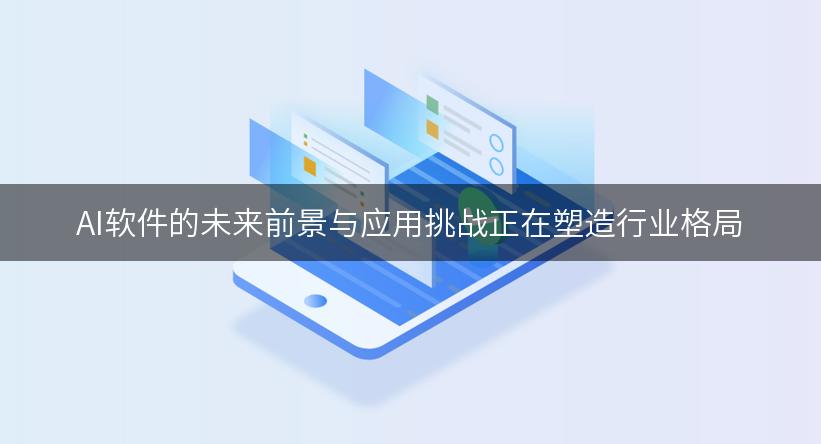
AI Software: Unpacking the Full English Name
In the realm of technology, the term AI is ubiquitous. But what does it stand for? AI, or Artificial Intelligence, represents a significant leap in computing power and capabilities. This article explores the implications of AI in various sectors, its evolution, and its future.
Historically, the concept of AI dates back to the 1950s when pioneers like Alan Turing laid the groundwork. Turing proposed that machines could simulate intelligent behavior. Fast forward to today, AI has permeated industries from healthcare to finance, transforming how businesses operate.
For instance, in healthcare, AI-driven software assists in diagnosing diseases with remarkable accuracy. A study published in the Journal of Medical Internet Research highlighted that AI algorithms could outperform human doctors in identifying certain conditions. This not only enhances patient care but also streamlines operational efficiency.
From a market perspective, the AI software industry is booming. According to a report by Gartner, the global AI market is projected to reach $190 billion by 2025. This growth is fueled by increasing investments in AI research and development, as companies seek to harness its potential for competitive advantage.
However, the rise of AI software is not without challenges. Ethical concerns surrounding data privacy and job displacement are prevalent. A survey conducted by the Pew Research Center revealed that 54% of Americans are worried about the impact of AI on employment. As machines become more capable, the fear of human redundancy looms large.
Moreover, the technology itself is evolving rapidly. Machine learning, a subset of AI, enables systems to learn from data and improve over time. This has led to innovations in natural language processing, image recognition, and more. Companies like Google and Microsoft are at the forefront, developing AI tools that enhance user experiences.
In my experience, utilizing AI software in customer service has been transformative. Implementing chatbots has reduced response times and improved customer satisfaction. However, it's essential to strike a balance between automation and human interaction. While AI can handle routine inquiries, complex issues still require a human touch.
To illustrate the versatility of AI software, consider its application in marketing. AI tools analyze consumer behavior, enabling personalized marketing strategies. According to a report by McKinsey, businesses that leverage AI in marketing see a 10-30% increase in revenue. This demonstrates the tangible benefits of integrating AI into business operations.
As we look to the future, the potential of AI software seems limitless. Innovations like quantum computing could revolutionize AI capabilities, allowing for even more complex problem-solving. However, with great power comes great responsibility. The need for ethical guidelines and regulations is paramount to ensure that AI is used for the greater good.
In conclusion, AI software, or Artificial Intelligence software, is reshaping our world. Its applications are diverse, and its impact profound. As we navigate this technological landscape, it's crucial to remain informed and engaged in discussions about its implications. The journey of AI has just begun, and the possibilities are endless.
本文编辑:小十三,来自加搜AIGC